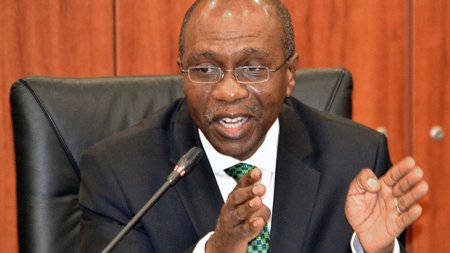L
LequteMan
Guest
Here are the words of Godwin Emefiele, Governor of the Central Bank of Nigeria, (CBN), on the clamor to bring down interest rates in Nigeria and why the apex bank has been refusing to do so:
“I sympathize with people when I hear the call on the CBN to reduce interest rates. I share their goal of a reduced single digit interest rate regime in Nigeria. But many people do not seem to understand that in times of high inflation, reducing interest rates make inflationary pressures much worse, with a second round effect of making economic growth even less possible.
“It is also important to note that interest rates reflect both cost of capital as well as cost of doing business. If we can approximate cost of capital as the average saving interest rate, which is about six percent, what then accounts for lending rates at 25 per cent or more? It is cost of doing business.
"For example, a typical Nigerian bank must employ the services of policemen and other security people deployed constantly to protect its branches. The bank must also provide a significant amount for reliable electricity and broadband internet services to keep its systems running. These expenditures only further increase costs of doing business for lenders, a cost they must pass on to borrowers.
“This is why the CBN’s fight to bring inflation down is strongly connected to our quest to ensure that lending rates also come down in due course.”
He spoke at the Vanguard Awards during the weekend.
However, the Director-General of the Lagos Chamber of Commerce and Industry, Muda Yusuf, said high interest rates are bad and are the main reason businesses are collapsing in the country.
“I sympathize with people when I hear the call on the CBN to reduce interest rates. I share their goal of a reduced single digit interest rate regime in Nigeria. But many people do not seem to understand that in times of high inflation, reducing interest rates make inflationary pressures much worse, with a second round effect of making economic growth even less possible.
“It is also important to note that interest rates reflect both cost of capital as well as cost of doing business. If we can approximate cost of capital as the average saving interest rate, which is about six percent, what then accounts for lending rates at 25 per cent or more? It is cost of doing business.
"For example, a typical Nigerian bank must employ the services of policemen and other security people deployed constantly to protect its branches. The bank must also provide a significant amount for reliable electricity and broadband internet services to keep its systems running. These expenditures only further increase costs of doing business for lenders, a cost they must pass on to borrowers.
“This is why the CBN’s fight to bring inflation down is strongly connected to our quest to ensure that lending rates also come down in due course.”
He spoke at the Vanguard Awards during the weekend.
However, the Director-General of the Lagos Chamber of Commerce and Industry, Muda Yusuf, said high interest rates are bad and are the main reason businesses are collapsing in the country.


